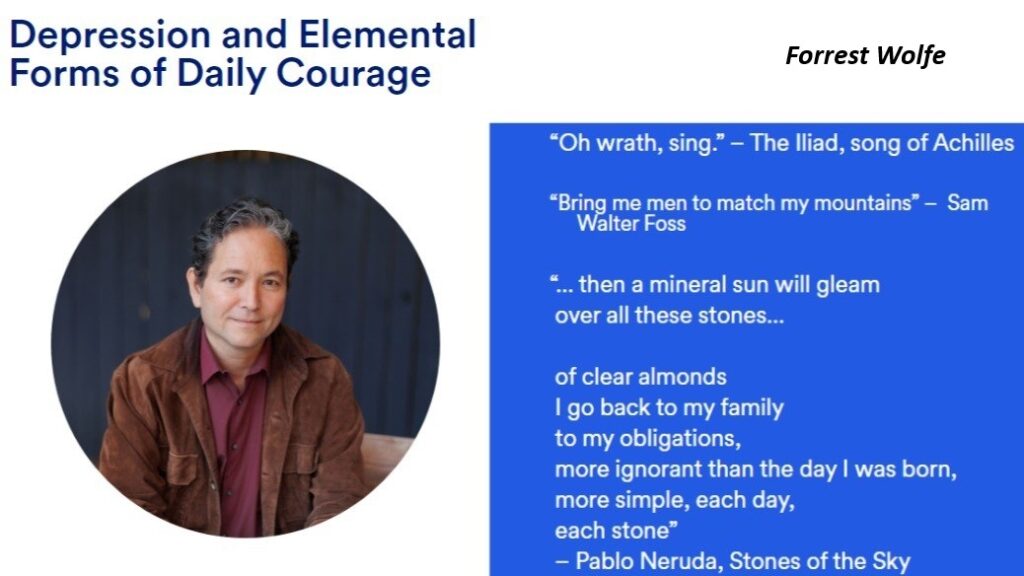A TED-like talk at USBank’s Atlanta Development Network on the courage in war, courage in daily depression, and their surprising affinity. These reflect my personal views and not my employer.
Here’s the orginal article on LinkedIn.

I know a man brave, strong and true. He was a veteran. He suffered from terrible depression. One day, he confided to me, he did not have the courage to live each day.
What sort of courage was he talking about?
A soldier’s courage is something special. In our movies, like Rambo and John Wick, we civilians imagine this to be wrath, and relentless rampage. Much like the wrath of Achilles. But wrath is not courage. In the Iliad, Achilles’ wrath consumes him and leads him into atrocity. The war poem is a rebuke of wrath.
My father was a veteran of the American wars in Southeast Asia. I put it like that because many Americans do not know that we fought the VIet Minh and their proxy armies, not just in Vietnam, but also neighboring Laos, Cambodia and Thailand. My father never spoke of his own courage, so much as the courage of the men he fought with. And especially — the Hmong mountain people who were our proxy army in Laos.
This indigenous mountain people showed great courage, in fighting the Viet Minh and Pathet Lao to a stand still in Laos for over twenty years, spanning from 1954 to the fall of Saigon in 1975. They fought to the last man, woman and child, after which the Pathet Lao communists unleashed their cowardly, genocidal wrath and exterminated most of the Hmong
Courage is something like the spirit of the Hmong mountain people, something higher than wrath, more elemental, and steadfast. It is resolute, as elemental as the mountains. It is something indestructible. It is not for the soldier himself, but for his brothers, for the people he protects. It is a mystery.
What is courage in depression? Well, certainly there is courage in letting yourself be lost. Depression is very much the entrance to a personal labyrinth, in which you are lost. I would also say that depression is a much more universal experience than our clinical psychiatry allows.
Here is Pablo Neruda, the famous Chilean poet, renowned for his love poetry across the world. Yet near the end of his life, he was no longer writing of romance or marriage, but of a life “turned to stone”. I cannot imagine a better evocation of depression than this, a life turned to stone. The trickle of water in life has run dry.
Facing his mortality, his life turned to stone, he began to write of the stones, in his last book of poems published 3 years before his death, called Stones of the Sky. On his walks, he began to sing to the stones around him — and found that the stones were alive.
You might say, well, he’s a poet. But no, the stones have life! This is an intuition that is common to indigneous native american cultures — the stones themselves are alive. And singing to the stones, he empties out of himself into larger life.
I tell you, there is courage like the stones, like the mountains, like the water, like the breath we breathe. For what is terrible in depression is not grief or anger, but the grief that cannot sing, the anger that cannot be spoken. Courage in depression is something elemental — my emptying out into larger life, into our common, indestructible life.
I believe depression is very much about facing your mortality. It is not unlike the soldier, who faces his mortality. The courage you may find is deeply elemental, this mysterious, indestructible life.
What is the fruit? If you can find this courage, the one or the other, then you get to go home to civilian life. To your family, your obligations, as simple as a stone. More simple than the day you ever left.
